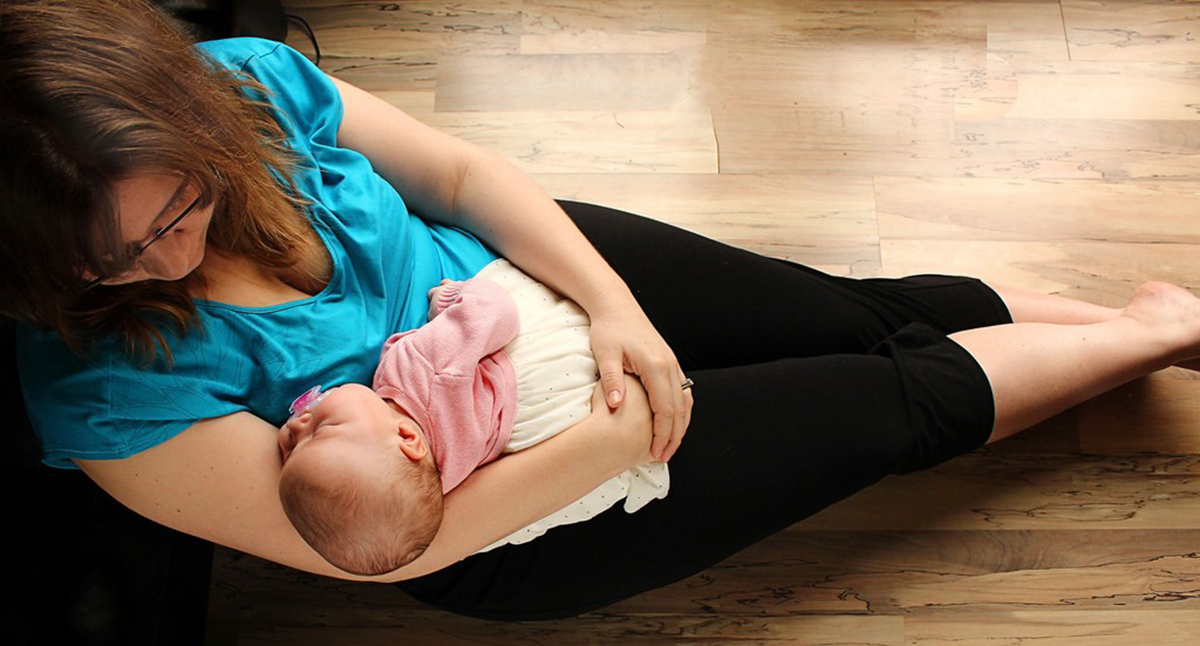Table of Contents
Certain kinds of symptoms are a sign that a mother's psychological discomfort is no longer new baby blues but instead a full-blown post-traumatic stress disorder.

- Inability to remember a distressing event in pregnancy.
- Inability to stop thinking about a distressing event in pregnancy.
- Flashbacks and/or nightmares.
- Sleep disturbance.
- Hypervigilance, being extremely aware of the baby's environment or her own.
- Problems with concentration.
- Attempting avoid reminders of the pregnancy.
The morphing of events in pregnancy or delivery into a post-traumatic stress disorder (PTSD) may occur insidiously over a period of 2 to 3 months. It is almost as if the PTSD "sneaks up" on the new mother. There may be such intense sadness or anxiety that the mother is unable to take care of her infant or herself.
Postpartum psychosis develops much more quickly, usually within 48 to 72 hours of the birth, usually in the first two weeks. Women who experience this condition may experience severe mood swings from paralyzing depression to elation, along with insomnia, irritability, and disorganized. These relatively rare mothers may develop delusional beliefs that their baby is either cursed by the devil or specially blessed by God, that the child is dying or, alternately, has superpowers (such as speaking from the crib), or experience auditory hallucinations of voices demanding that the mother harm herself or the child. Only 0.1 to 0.2% of all women develop postpartum psychoses, but of these unfortunate few, 4% will kill their children.
The infant will need a caregiver who is well. The mother will need the help of her OB-GYN, a psychiatrist, and a social worker. A spouse and siblings will need their own support network to deal with the stresses posed by the mother and child. Everyone involved may need regular breaks simply to get away from the tension of the situation during the long process of psychological healing.
Treatment Options
New baby blues usually aren't treated at all. Postpartum depression is usually treated on an outpatient basis. Postpartum psychosis is a medical emergency requiring psychiatric hospitalization and medication.
Antidepressant medications such as fluoxetine, sertraline, and paroxetine usually do not pass into breast milk in measurable amounts, although the long-term effects of trace amounts of these drugs on infants are not known. Antipsychotic and anticonvulsant medications such as valproic acid and carbamazepine definitely do pass into breast milk, and can cause severe liver damage in the baby if breastfed by the mother when taking these drugs.
See Also: Postpartum Problems Every Mom Should Know About
Sometimes it is better to forgo breastfeeding the infant so that the mother can receive treatment for depression. Any mother who has become depressed during pregnancy, or who has a a history of postpartum depression with older children, should be evaluated for treatment with antidepressants beginning immediately after the delivery of the baby. And new mothers who had difficult childhoods should be offered all the support that is available for them to minimize stress and help the happy, normal development of the child.
- Shalev, A.Y., Freedman, S., Peri, T., Brandes, D., Sahar, T., Orr, S., Pitman, R. (1998). Prospective study of posttraumatic stress disorder and depression following trauma. Am J Psychiatry, 155. pp. 630-637.
- Soderquist, J., Wijma, B., Thorbert, G., Wijma, K. (2009). Risk factors in pregnancy for post-traumatic stress and depression after childbirth. BJOG: An International Journal of Obstetrics and Gynaecology, 16(5). pp. 672-680.
- Mindmap by steadyhealth.com
- Photo courtesy of Jessica Pankratz by Flickr : www.flickr.com/photos/jessanick/14283762079


Your thoughts on this